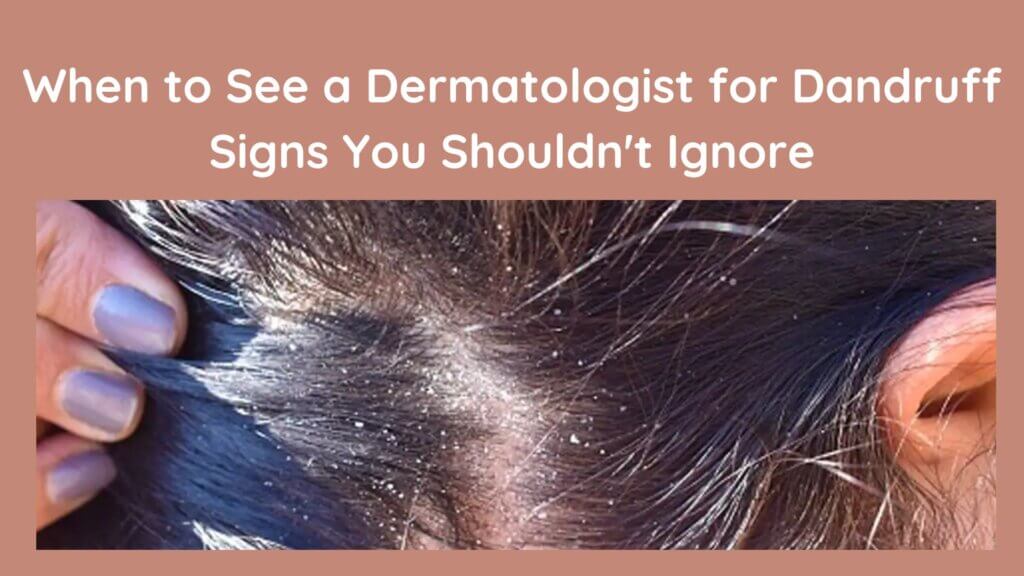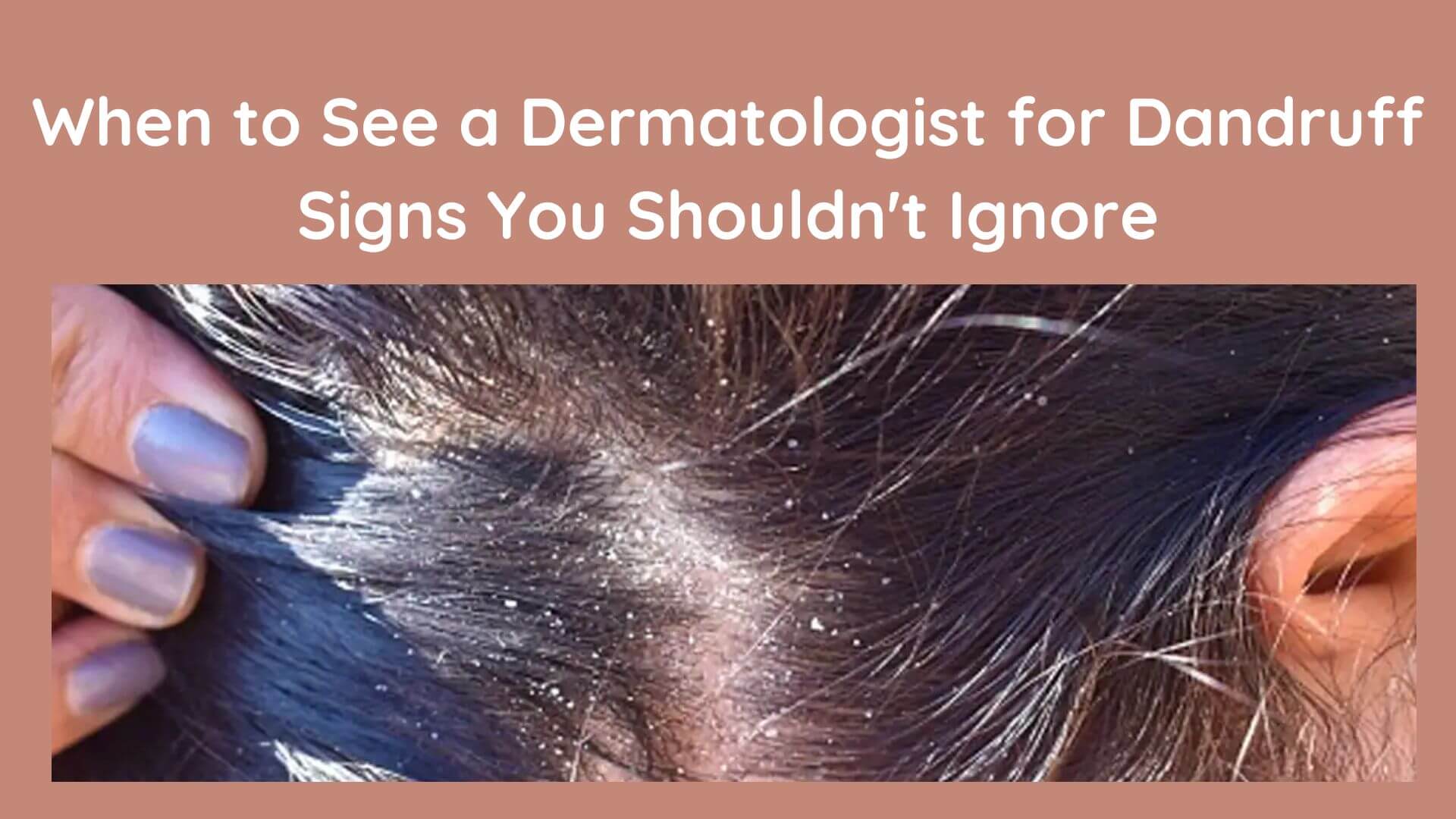When to See a Dermatologist for Dandruff: Signs You Shouldn’t Ignore
Introduction:
Dandruff is a common scalp condition that many people experience at some point in their lives. While it’s often manageable with over-the-counter products and home remedies, there are instances when dandruff may indicate an underlying issue that requires professional attention. In this blog post, we will explore the signs that suggest it’s time to consult a dermatologist for your dandruff concerns.When to See a Dermatologist for Dandruff: Signs You Shouldn’t Ignore
- Persistent and Severe Flaking:
If you’ve tried various dandruff shampoos and home remedies without success, and the flaking continues to be persistent and severe, it’s a clear sign that a professional evaluation is needed. Dermatologists can assess the severity of your condition and recommend targeted treatments based on the underlying cause.When to See a Dermatologist for Dandruff: Signs You Shouldn’t Ignore
- Itching and Redness Beyond the Scalp:
While mild itching is common with dandruff, if you experience intense and persistent itching that extends beyond your scalp to other areas like your face, neck, or ears, it could be indicative of a more serious skin condition. Dermatologists can help identify the root cause and recommend appropriate treatments.
- Oily or Greasy Scalp:
Dandruff is often associated with dry skin, but in some cases, an excessively oily or greasy scalp can contribute to the problem. If you notice an increase in oiliness accompanied by persistent dandruff, a dermatologist can determine if an underlying condition such as seborrheic dermatitis is at play and suggest targeted interventions.When to See a Dermatologist for Dandruff: Signs You Shouldn’t Ignore
- Dandruff in Children:
While dandruff is more commonly seen in adults, it can affect children as well. If your child is experiencing persistent dandruff, it’s advisable to consult a dermatologist. Children may have different underlying causes, and a dermatologist can provide appropriate recommendations for gentle and effective treatment options.
- Presence of Sores or Bumps on the Scalp:
The development of sores, bumps, or pustules on the scalp alongside dandruff could be indicative of a more complex skin condition. These symptoms may suggest conditions such as psoriasis or folliculitis, which require professional diagnosis and management.When to See a Dermatologist for Dandruff: Signs You Shouldn’t Ignore
- Changes in Hair Texture or Loss:
If you notice changes in your hair texture, such as thinning or hair loss in conjunction with dandruff, it’s essential to seek dermatological advice. A dermatologist can assess whether the dandruff is contributing to hair issues or if there’s an underlying problem that needs attention.

Conclusion:
While mild dandruff can often be managed at home, persistent and severe cases, especially when accompanied by other concerning symptoms, warrant a visit to a dermatologist. Seeking professional help ensures an accurate diagnosis and personalized treatment plan, addressing the root cause of your dandruff and promoting a healthier scalp. Don’t ignore the signs—consult a dermatologist for the expertise needed to achieve optimal scalp health.


Leave a Comment
Your email address will not be published. Required fields are marked *